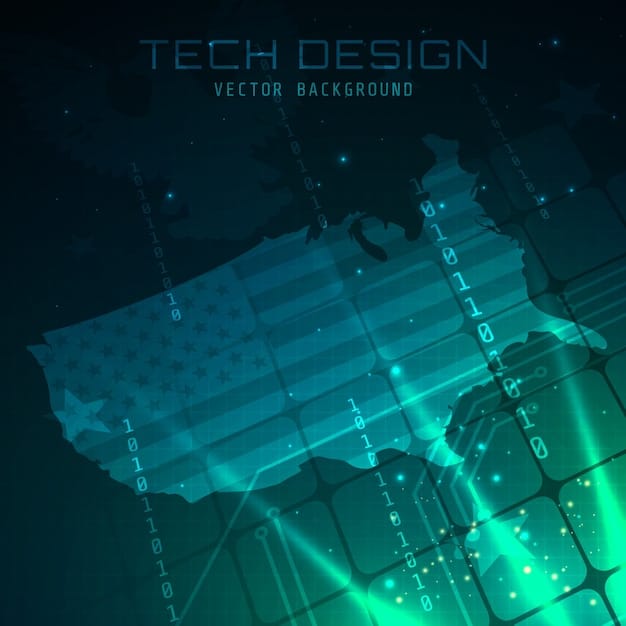EdTech innovations transforming education today

Anúncios
EdTech innovations, including AI and interactive technologies, enhance learning by personalizing education, increasing engagement, and providing access to diverse resources while addressing challenges like accessibility and data privacy.
EdTech innovations are revolutionizing how we learn and teach. Have you ever wondered how technology can enhance student engagement and learning outcomes? In this article, we’ll dive into the tools and trends that are making waves in education today.
Understanding EdTech innovations
Understanding EdTech innovations is essential in today’s educational landscape. These technologies enhance learning experiences and make education more accessible.
Key innovations include online learning platforms, educational apps, and virtual classrooms. Each of these tools serves to engage students and foster collaboration.
Types of EdTech Innovations
There are several groundbreaking EdTech innovations to be aware of:
Anúncios
- Learning Management Systems (LMS): These platforms help organize courses, track student progress, and facilitate communication between students and instructors.
- Interactive Learning Tools: These tools include gamified learning apps and simulation software that makes learning enjoyable and interactive.
- Virtual and Augmented Reality: VR and AR offer immersive experiences that can bring educational content to life, making complex subjects easier to understand.
For more on how EdTech can enhance education, explore resources from Edutopia.
Benefits of EdTech in the classroom
The integration of EdTech in the classroom provides numerous benefits that enhance the learning experience. Students can engage more effectively with interactive tools that cater to their learning styles.
Some key benefits include:
- Personalized Learning: EdTech allows for tailored educational experiences that meet individual student needs and pace.
- Increased Engagement: Innovative tools like games and simulations motivate students to participate actively in their learning process.
- Access to Resources: Digital platforms provide a wealth of information and resources that are available anytime, anywhere, expanding learning opportunities.
Teachers can also benefit immensely. They have access to valuable data that helps them track progress and identify areas where students may need extra support. Additionally, EdTech simplifies administrative tasks, allowing educators to focus on teaching.
For more information on the importance of EdTech in education, visit EDUCAUSE.
Key technologies shaping education

Several key technologies are shaping education today, driving innovation and transforming traditional teaching methods. These advancements provide exciting opportunities for both students and educators.
Among the most influential technologies are:
- Artificial Intelligence (AI): AI can personalize learning experiences by adapting content to suit each student’s pace and understanding.
- Cloud Computing: This technology allows for easy access to educational resources from anywhere, fostering collaboration among students and teachers.
- Learning Analytics: By analyzing data on student performance, educators can gain valuable insights and improve teaching strategies.
Additionally, mobile technologies enable learning on the go, making education accessible from smartphones and tablets. These innovations not only improve engagement but also make learning more efficient.
For further information on key educational technologies, you can visit LearnPlatform.
Challenges faced by EdTech
While EdTech offers significant benefits, it also faces several challenges that can impede its effectiveness in educational settings. Understanding these challenges is crucial for implementing successful solutions.
Some common challenges include:
- Access to Technology: Not all students have equal access to devices and reliable internet, creating a digital divide that can hinder learning.
- Training for Educators: Teachers may require professional development to effectively integrate technology into their teaching. Without proper training, the potential of EdTech may not be fully realized.
- Data Privacy Concerns: The use of online tools raises questions about how student data is collected and protected. Schools must ensure compliance with regulations to safeguard privacy.
Addressing these challenges is essential for maximizing the impact of EdTech in the classroom, allowing educators and students to fully benefit from these innovations.
For more insights on the challenges in EdTech, check resources at Education Corner.
Future trends in educational technology
The future of educational technology is bright, with trends that promise to reshape how students learn and teachers instruct. These innovations will likely create a more engaging and customized educational experience.
Some exciting trends include:
- Artificial Intelligence: AI is expected to enhance personalized learning by adapting educational materials to each student’s unique learning style.
- Virtual Reality and Augmented Reality: These technologies will provide immersive learning experiences, allowing students to explore concepts in a new and interactive way.
- Gamification: Incorporating game elements into learning can boost student motivation and engagement, making education fun and effective.
Online learning platforms will also evolve, offering more flexible and engaging options for students. Innovations in EdTech will continue to open new doors for collaboration and creativity in the classroom.
For further information on trends in educational technology, check out resources at EdSurge.
The world of **EdTech** is constantly evolving, bringing exciting opportunities for both educators and students. As technology continues to shape education, it’s essential to embrace these changes. Innovations like AI, virtual reality, and personalized learning are not just trends; they are tools that can enhance engagement and improve outcomes. However, challenges such as access, training, and data privacy must be addressed to maximize the benefits of these technologies. By working together, we can create a more inclusive and effective educational environment for everyone.
Here’s a summary table of key points:
FAQ – Frequently Asked Questions about EdTech Innovations
What are the main benefits of EdTech in the classroom?
EdTech enhances engagement, personalizes learning experiences, and provides access to a wide range of educational resources.
How can teachers effectively adopt new EdTech tools?
Educators should seek training opportunities and support to understand how to integrate technology into their teaching methods.
What challenges does EdTech face in education today?
EdTech faces challenges such as access disparities, the need for teacher training, and concerns about data privacy.
What technologies are shaping the future of education?
Key technologies include artificial intelligence, virtual reality, and gamification, which enhance learning experiences and engagement.




